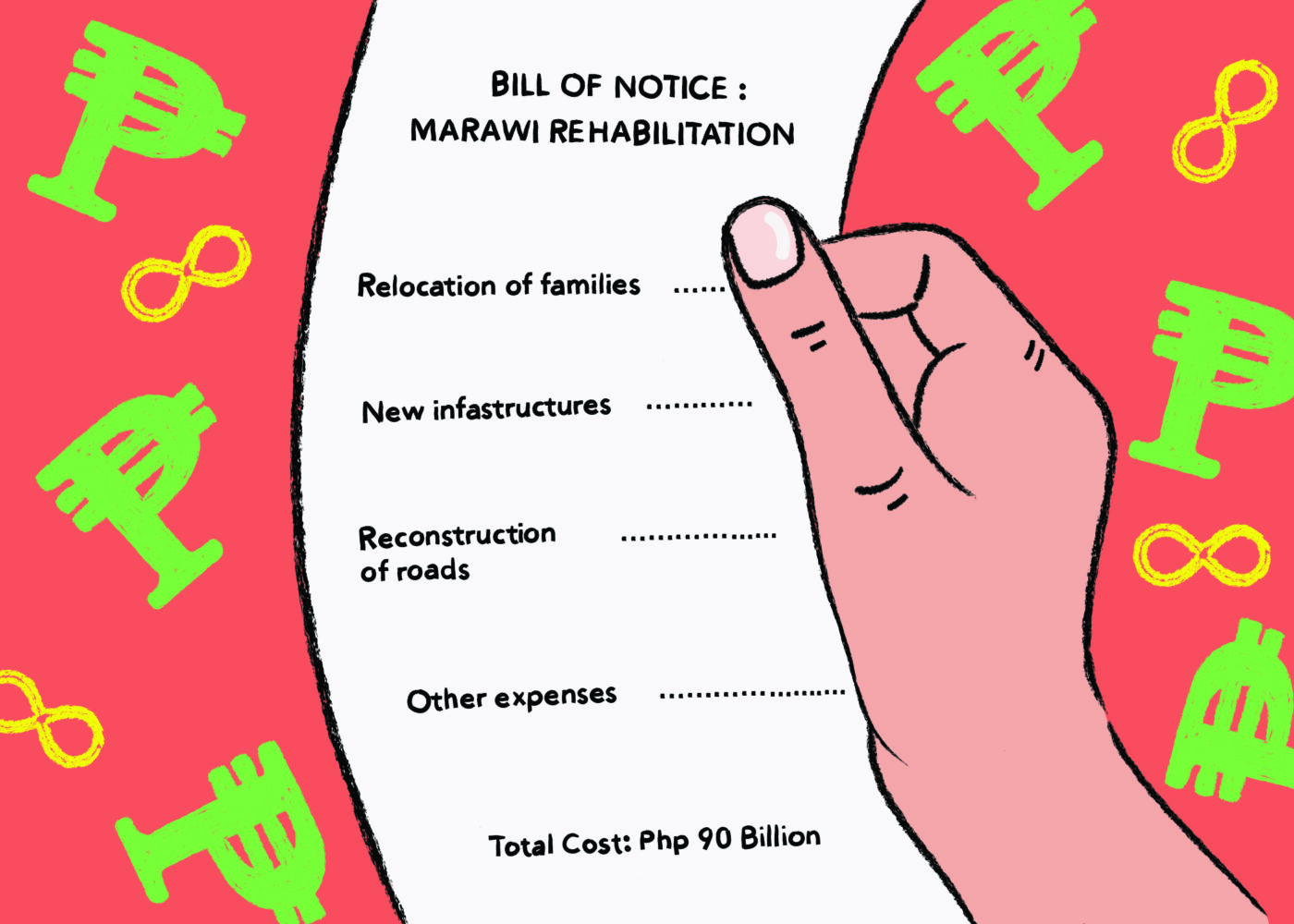The sun rises on the city of Marawi, left bloodied and decimated by a five-month-long conflict. Empty streets intersect empty streets and piles of rubble remain where tall buildings had existed – as the triumphed soldiers bring the Philippine flag back into the once-embattled city. Six months have passed since the siege started. Silent mosques, razed schools, and empty houses dot what was once the vibrant capital of Lanao del Sur.
More than 40 days after the Battle of Marawi had ended, the Islamic city is a ruin; and rehabilitation efforts are on their way. The government is allocating billions to rebuild Marawi, and foreign allies are lining up to do what they can to help.
However, the current administration’s policies regarding foreign aid have come under fire for the past few months, particularly with respect to President Rodrigo Duterte’s adamant refusal of conditional aid from long-standing allies. Critics claim that this haughty stance starves much needed aid to areas that desperately need funds such as Marawi.
In response to these criticisms, Task Force Bangon Marawi, an inter-agency group headed by the Housing and Urban Development Chair Eduardo del Rosario, with Defense Secretary Delfin Lorenzana and Public Works Secretary Mark Villar as co-chairpersons, has pledged to restore order to Marawi City while remaining true to the President’s directives.
Back in 2013 – when Typhoon Yolanda hit the city of Tacloban, a scandal emerged after hordes of relief goods donated by both local and foreign governments did not reach the hands of those affected. According to Task Force Bangon Marawi Spokesperson Kristoffer Purisima, some of the pledges and donations were coursed through private hands, and not through the government. This apparently caused mass confusion, not only for the public, but also for those involved in the relief and rehabilitation efforts.
For this reason, Task Force Bangon Marawi was established to avoid the mistakes of Yolanda.
According to the estimates of Marawi City Mayor Majul Gandamra, the fallen city will need Php 90 billion for rebuilding infrastructure alone. The Autonomous Region of Muslim Mindanao has allocated about Php 1.8 B of its budget to fund the rebuilding of Marawi, while the Department of Social Welfare and Development has offered Php 682 million-worth of assistance. However, these remain insufficient.
As part of rehabilitation efforts, the Office of Civil Defense (OCD), the implementing arm of the National Disaster Risk Reduction and Management Council, is tasked with implementing the Post-Conflict Needs Assessment (PCNA) to determine the total cost of rehabilitation. Factors that go into the calculations include transportation and road network infrastructures, housing facilities, livelihood assistance, and academic financial support. Only after the PCNA is done can a call for foreign assistance be made.
In the wake of the disaster in Marawi, one of the first respondents for relief was the ASEAN Coordinating Centre for Humanitarian Assistance on Disaster Management. The relationship between the Philippines and the ASEAN community was strengthened during this response and was welcomed gratefully.
However, an excessive reliance on foreign aid threatens to undermine existing institutions and instill what experts term “aid dependency.”
Aid dependency reduces the agency of sovereign governments and limits their ability to implement policy conducive to development, having to depend on the whims of their donors. According to Stephen Knack, a leading economist in the Development Research Group of the World Bank, the involvement of donors—either foreign governments or international agencies—in the recipient country’s political processes has been shown to reduce the quality of governance.
Purisima stresses the hierarchy that responders to any calamity must follow. Events such as Marawi City siege must first be answered by the local government units (LGU), which in this case is the Marawi City LGU. Higher government positions such as regional and provincial governments must only provide assistance when the local government can not effectively handle the situation.
Ignoring the sequence of actors in any given state weakens institutions, and creates inefficiencies. “It’s good policy to strengthen your internal systems, your internal mechanisms before you ask for assistance elsewhere because we are capable,” Purisima says.




